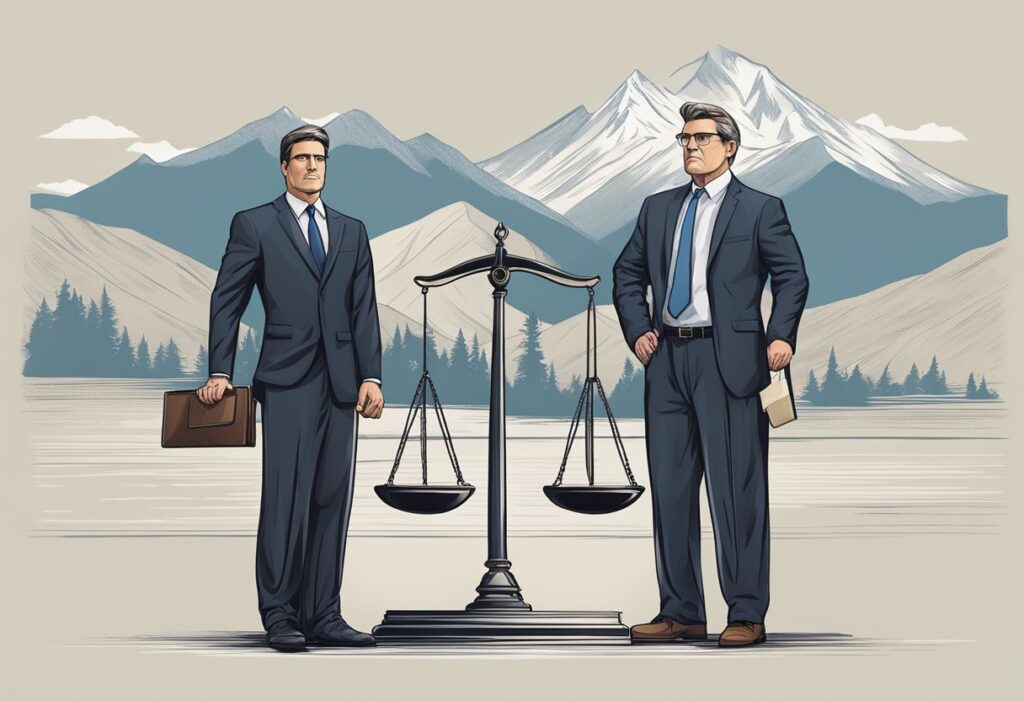Colorado Personal Injury Lawyers: Your Guide to Finding the Right Legal Representation
Colorado personal injury lawyers play a crucial role in helping individuals who have been injured due to someone else’s negligence. Personal injury law in Colorado can be complex and confusing, which is why it’s essential to have a knowledgeable and experienced attorney on your side. From car accidents to slip and falls, personal injury cases can arise in a variety of situations, and having the right legal representation can make all the difference in the outcome of your case.

When it comes to choosing the right Colorado personal injury lawyer, it’s essential to do your research and find an attorney who has experience handling cases similar to yours. A good lawyer will be able to guide you through the personal injury claims process and help you understand your rights and options. They will also be able to provide you with an estimate of the compensation you may be entitled to and help you negotiate a fair settlement.
Key Takeaways
- Colorado personal injury lawyers are essential for individuals who have been injured due to someone else’s negligence.
- Choosing the right lawyer is crucial and requires research and consideration of their experience and expertise.
- A good lawyer can guide you through the claims process, help you understand your rights, and negotiate a fair settlement.
Understanding Personal Injury Law in Colorado
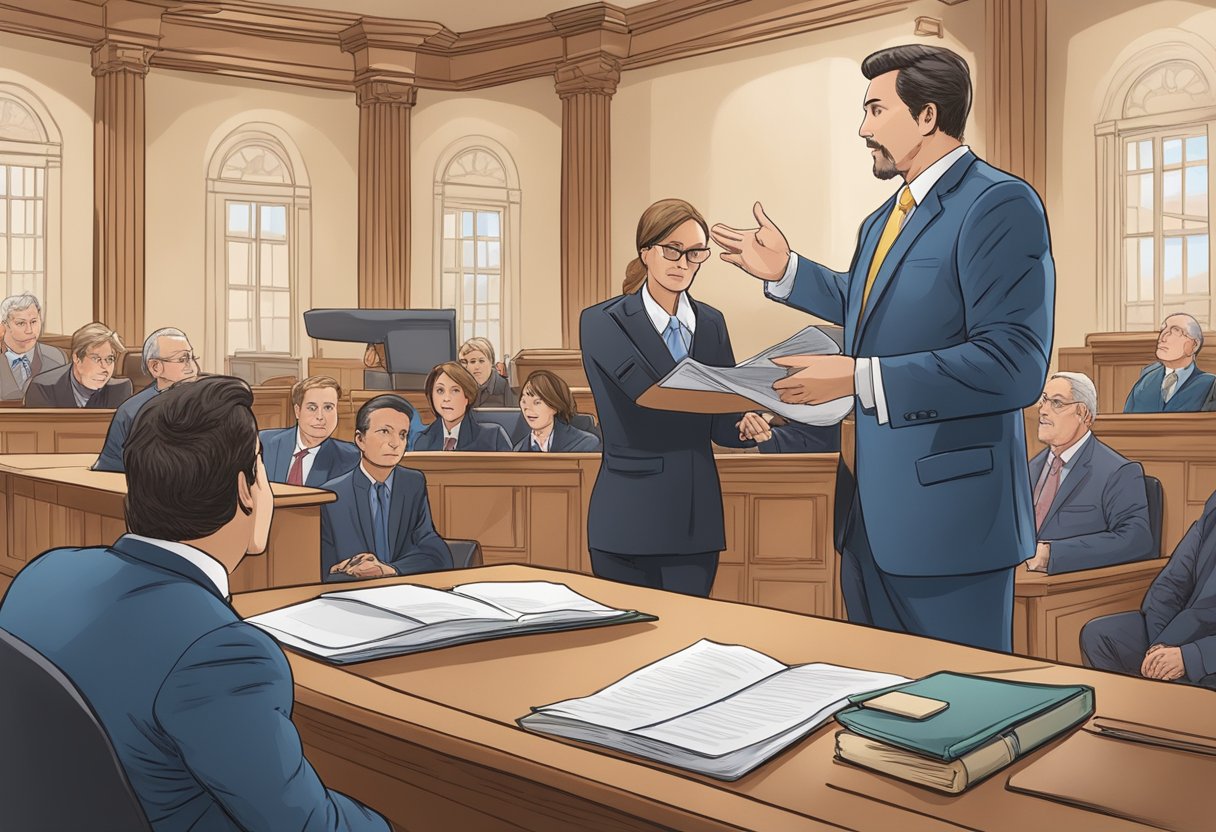
Personal injury law in Colorado is a legal framework that enables individuals who have suffered harm due to the negligence of others to seek compensation for their losses. In Colorado, personal injury law covers a wide range of cases, including car accidents, slip and fall accidents, medical malpractice, and product liability.
To pursue a personal injury claim in Colorado, the injured party must prove that the other party was negligent and that this negligence caused their injuries. Negligence is defined as the failure to exercise reasonable care, which results in harm to another person.
Colorado law follows a modified comparative negligence rule, which means that the amount of compensation a plaintiff can receive may be reduced if they are found to be partially at fault for their injuries. If the plaintiff is found to be more than 50% responsible for their injuries, they may not be entitled to any compensation.
It is important to note that Colorado has a statute of limitations for personal injury claims. This means that the injured party must file a lawsuit within a specific period of time after the injury occurred. In Colorado, the statute of limitations for personal injury claims is two years from the date of the injury.
If you have been injured due to the negligence of another party in Colorado, it is important to seek the advice of an experienced personal injury lawyer. An attorney can help you understand your legal rights and options, and can work to ensure that you receive the compensation you deserve.
Choosing the Right Colorado Personal Injury Lawyer
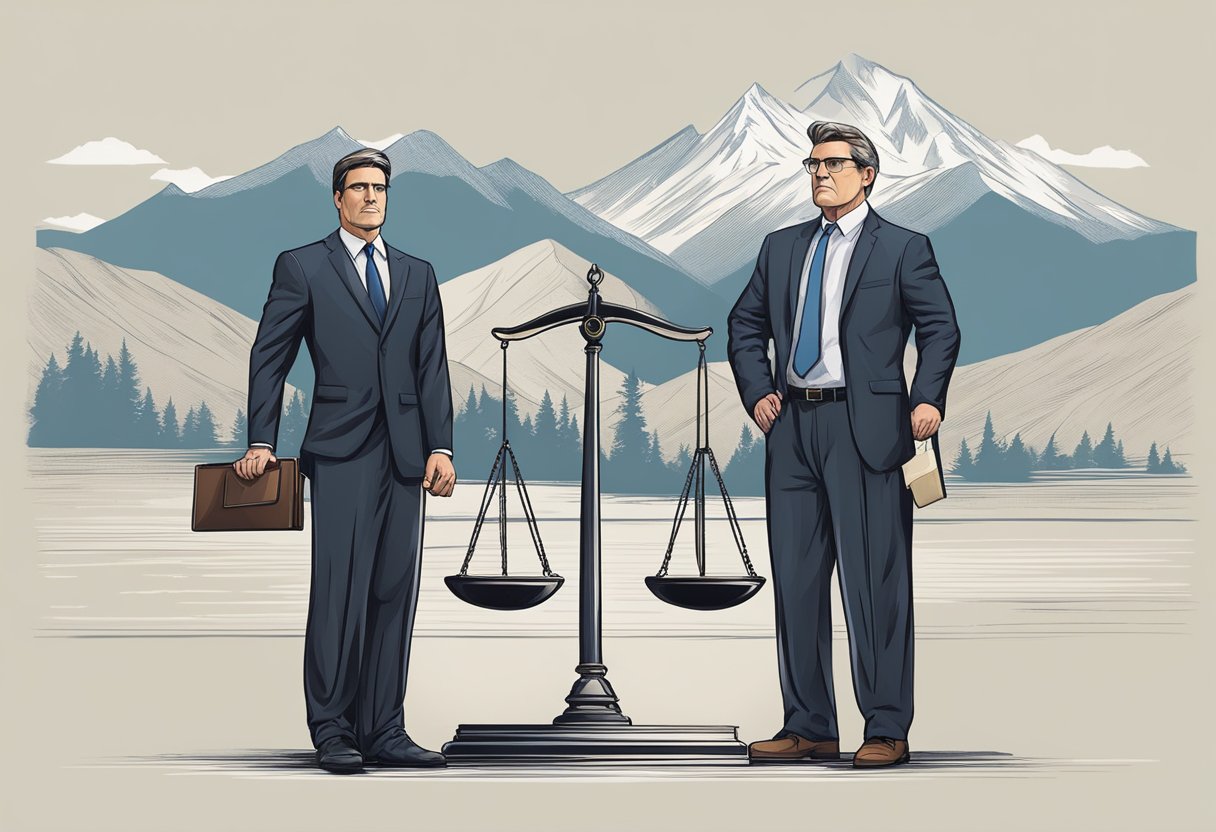
If you’ve been injured in an accident, it’s important to choose the right personal injury lawyer to represent you. With so many lawyers to choose from, it can be difficult to know where to start. Here are a few things to consider when choosing a Colorado personal injury lawyer.
Experience and Specialization
When looking for a personal injury lawyer, it’s important to choose someone with experience in handling cases like yours. Look for a lawyer who specializes in personal injury law and has experience handling cases similar to yours. A lawyer who has handled cases like yours in the past will be better equipped to represent you and help you get the compensation you deserve.
Client Testimonials and Case Results
Before choosing a personal injury lawyer, it’s important to do your research. Look for reviews and testimonials from past clients to get an idea of what you can expect. You can also look at a lawyer’s case results to see how successful they have been in the past. A lawyer with a track record of success is more likely to be able to help you get the compensation you deserve.
Communication and Comfort Level
When choosing a personal injury lawyer, it’s important to choose someone you feel comfortable working with. Look for a lawyer who is easy to communicate with and who takes the time to listen to your concerns. A good lawyer will keep you informed throughout the process and will be available to answer any questions you may have.
In conclusion, choosing the right personal injury lawyer is an important decision that can have a big impact on the outcome of your case. By considering the lawyer’s experience, client testimonials, and communication skills, you can find a lawyer who will represent you well and help you get the compensation you deserve.
The Personal Injury Claims Process in Colorado
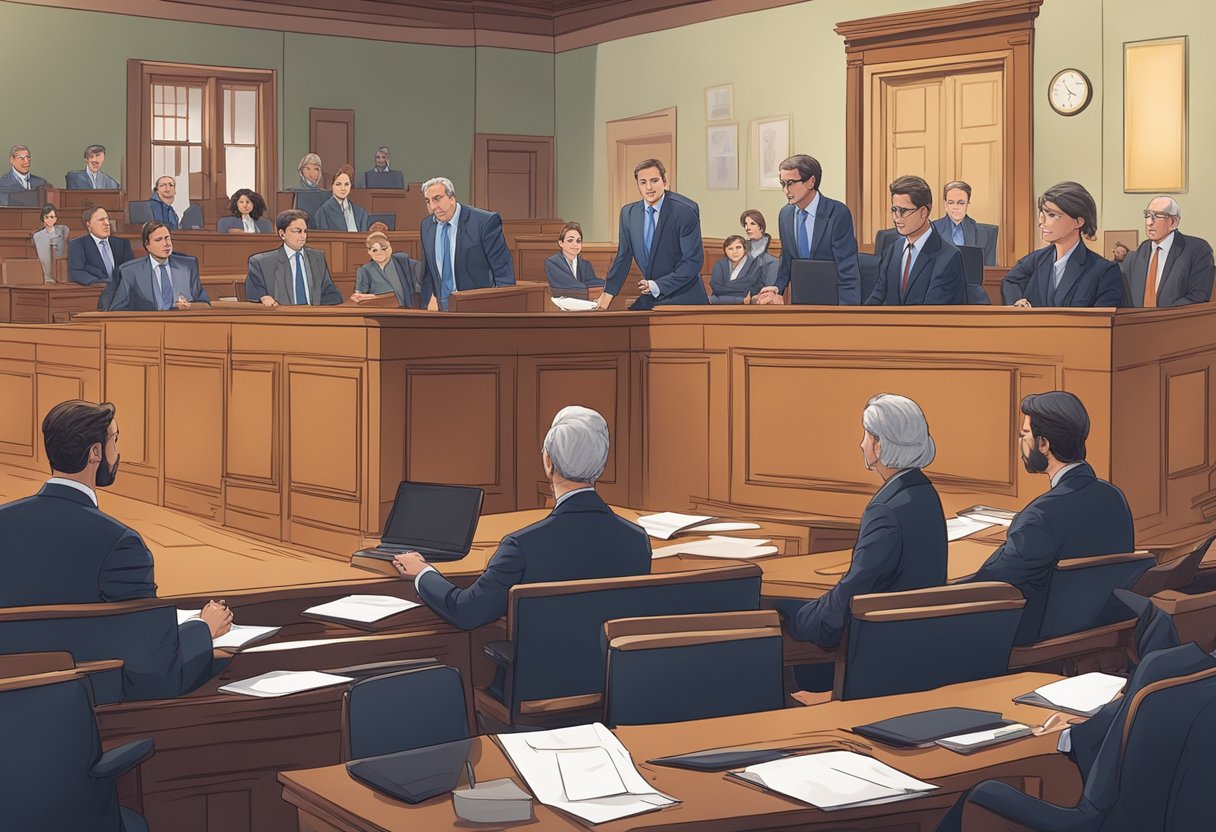
Initial Consultation
The personal injury claims process in Colorado starts with an initial consultation with a personal injury lawyer. During this consultation, the lawyer will assess the potential case and determine whether or not the client has a valid claim. The lawyer will also explain the legal process and answer any questions the client may have.
Investigation and Evidence Gathering
After the initial consultation, the personal injury lawyer will investigate the case and gather evidence to support the claim. This may include interviewing witnesses, reviewing medical records, and consulting with experts in various fields.
Filing the Claim
Once the lawyer has gathered all the necessary evidence, they will file the personal injury claim with the appropriate court. The lawyer will also serve the defendant with a copy of the complaint and summons.
Negotiation and Settlement
After the defendant has been served, the personal injury lawyer will enter into negotiations with the defendant’s insurance company. The goal of these negotiations is to reach a settlement that is fair and compensates the client for their injuries.
Trial Preparation and Litigation
If a settlement cannot be reached, the personal injury lawyer will prepare for trial and litigate the case in court. During this process, the lawyer will present evidence and argue the case in front of a judge or jury.
Overall, the personal injury claims process in Colorado can be complex and time-consuming. It is important to hire an experienced personal injury lawyer who can guide you through the process and help you obtain the compensation you deserve.
Types of Personal Injury Cases Handled in Colorado
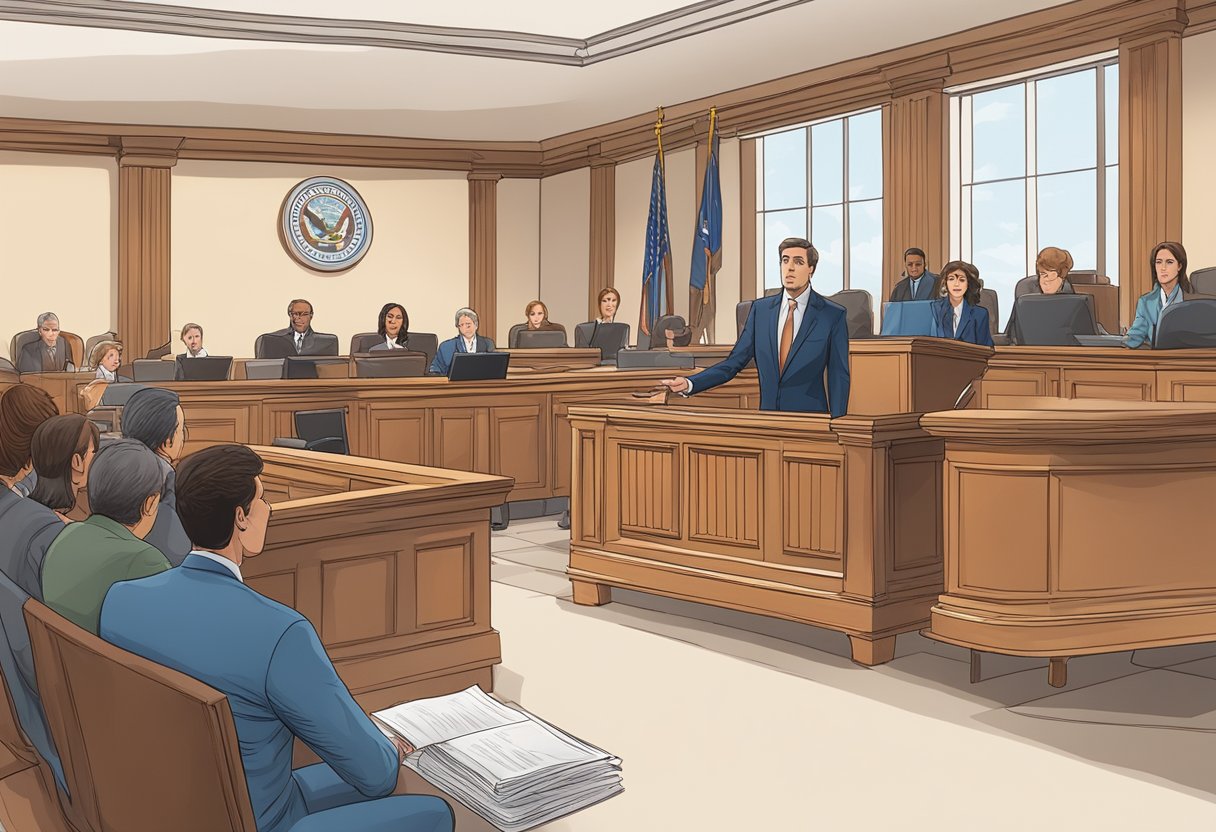
Personal injury cases can arise from a variety of situations such as car accidents, slip and fall incidents, medical malpractice, and workplace accidents. In Colorado, personal injury lawyers handle cases related to these situations and more.
Auto Accidents
Auto accidents are one of the most common types of personal injury cases in Colorado. They can result in serious injuries such as broken bones, head trauma, and spinal cord injuries. A personal injury lawyer can help victims of auto accidents get compensation for medical bills, lost wages, and pain and suffering.
Slip and Fall Incidents
Slip and fall incidents can occur in any public or private place, including stores, restaurants, and sidewalks. These incidents can result in injuries such as broken bones, head injuries, and back injuries. A personal injury lawyer can help victims of slip and fall incidents hold property owners accountable for their negligence and get compensation for their injuries.
Medical Malpractice
Medical malpractice occurs when a healthcare provider fails to provide the appropriate standard of care, resulting in harm to the patient. Medical malpractice cases can be complex and require the expertise of a personal injury lawyer. A lawyer can help victims of medical malpractice get compensation for medical bills, lost wages, and pain and suffering.
Workers’ Compensation Claims
Workers’ compensation claims arise when an employee is injured on the job. In Colorado, employers are required to provide workers’ compensation insurance to their employees. A personal injury lawyer can help injured workers navigate the workers’ compensation system and get the benefits they are entitled to.
In summary, Colorado personal injury lawyers handle a variety of cases related to personal injury, including auto accidents, slip and fall incidents, medical malpractice, and workers’ compensation claims. If you have been injured due to someone else’s negligence, it is important to seek the help of an experienced personal injury lawyer.
Compensation in Personal Injury Cases
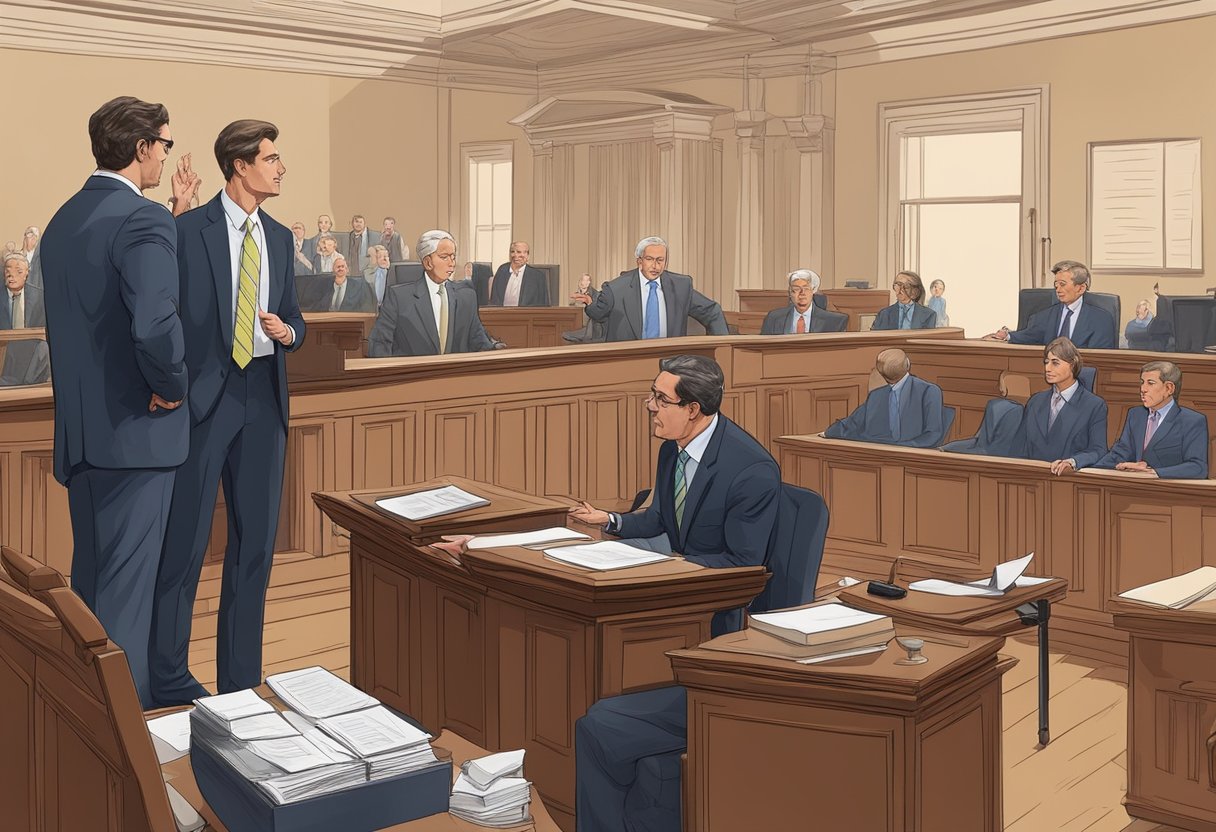
When someone is injured due to the negligence of another party, they may be entitled to compensation for their damages. Personal injury cases can result in various types of damages, including economic, non-economic, and punitive damages.
Economic Damages
Economic damages refer to the financial losses incurred by the injured party as a result of the accident. These damages can include medical expenses, lost wages, and property damage. In personal injury cases, the injured party can seek compensation for all economic damages they have suffered as a result of the accident.
Non-Economic Damages
Non-economic damages refer to the intangible losses incurred by the injured party as a result of the accident. These damages can include pain and suffering, emotional distress, and loss of enjoyment of life. In personal injury cases, the injured party can seek compensation for all non-economic damages they have suffered as a result of the accident.
Punitive Damages
Punitive damages are a form of compensation that is awarded to the injured party as a form of punishment to the negligent party. These damages are only awarded in cases where the negligent party’s actions were particularly egregious or malicious. In personal injury cases, the injured party may be entitled to punitive damages in addition to economic and non-economic damages.
It is important to note that the amount of compensation awarded in personal injury cases varies depending on the specific circumstances of the case. An experienced Colorado personal injury lawyer can help injured parties determine what damages they may be entitled to and can help them navigate the legal process to obtain the compensation they deserve.
Statute of Limitations for Colorado Personal Injury Claims
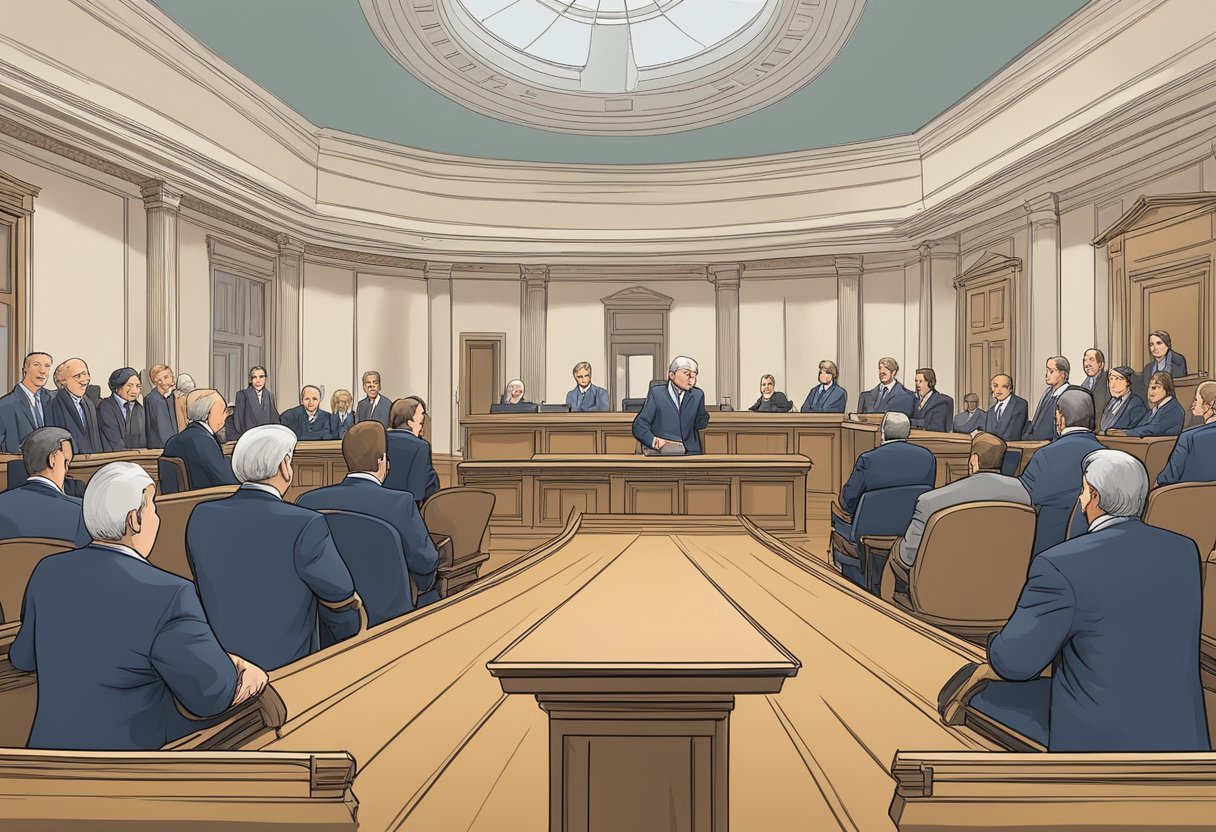
In Colorado, the statute of limitations for personal injury claims is two years from the date of the injury. This means that individuals who have been injured due to someone else’s negligence have two years from the date of the injury to file a lawsuit.
It is important to note that if the injury is not discovered right away, the two-year statute of limitations may begin on the date the injury was discovered or should have been discovered with reasonable diligence.
Additionally, if the injury occurred to a minor, the statute of limitations may be extended until the child reaches the age of 18. However, it is still recommended to file a lawsuit as soon as possible to ensure that evidence and witness testimony are still fresh.
If the statute of limitations expires before a lawsuit is filed, the injured individual may lose their right to pursue legal action and obtain compensation for their injuries.
It is highly recommended to consult with a Colorado personal injury lawyer as soon as possible after an injury occurs to ensure that all legal options are explored within the appropriate timeframe.
Colorado Personal Injury Law: Comparative Negligence
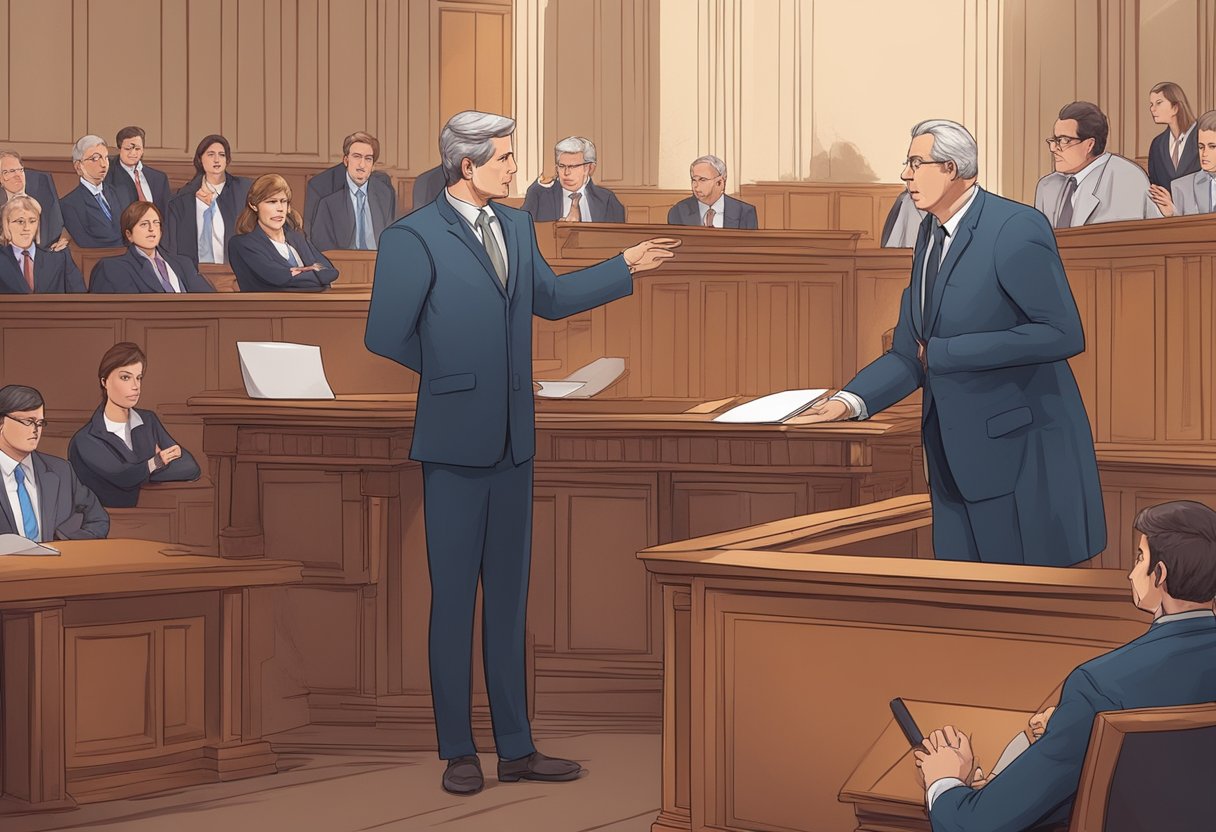
In Colorado, personal injury cases are often complicated by the issue of comparative negligence. This legal concept refers to the degree to which each party involved in an accident is responsible for the injuries sustained. Comparative negligence can significantly impact the amount of compensation an injured party can receive.
Colorado follows a modified comparative negligence rule, which means that an injured party can only recover damages if they are less than 50% at fault for the accident. If the injured party is found to be more than 50% at fault, they are not entitled to any compensation.
It’s important to note that even if an injured party is found to be partially at fault for the accident, they can still recover damages. However, the amount of compensation they receive will be reduced by the percentage of fault assigned to them.
For example, if a person is injured in a car accident and is found to be 30% at fault for the accident, their compensation will be reduced by 30%. So, if they were awarded $100,000 in damages, they would only receive $70,000.
Comparative negligence can be a complex issue, and it’s important to have an experienced personal injury lawyer on your side. They can help you navigate the legal process and ensure that you receive the compensation you deserve.
How to Prepare for Your Personal Injury Case
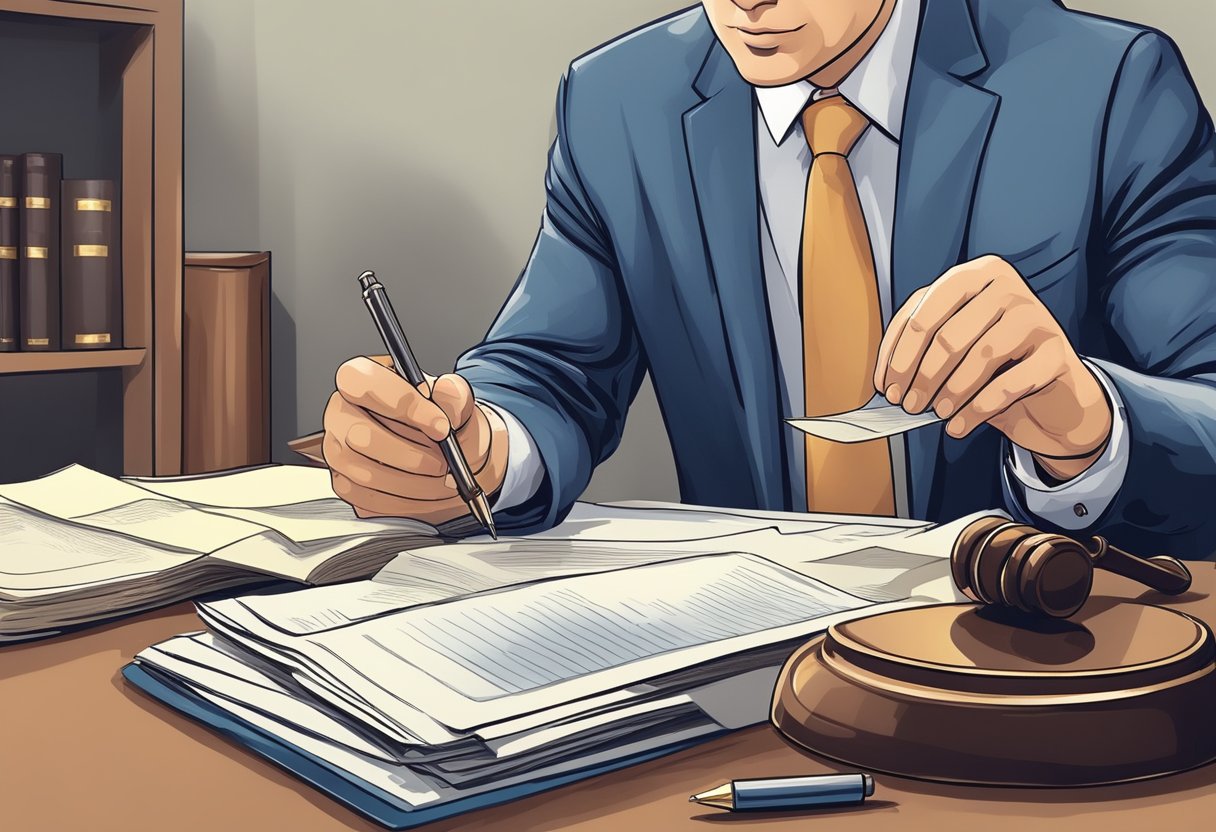
When preparing for a personal injury case, it is important to be organized and prepared. This section will provide some tips on how to prepare for your personal injury case.
Documenting Your Injuries
One of the most important things you can do when preparing for your personal injury case is to document your injuries. This includes taking pictures of any visible injuries, as well as keeping track of any medical records related to your injuries. It is also important to keep a journal detailing your pain and suffering, as well as any limitations you are experiencing as a result of your injuries.
Keeping Track of Expenses
Another important aspect of preparing for your personal injury case is keeping track of your expenses. This includes any medical bills, lost wages, and other expenses related to your injuries. It is important to keep all of your receipts and bills organized, and to keep a record of any conversations you have with insurance companies or other parties involved in your case.
Staying Off Social Media
Finally, it is important to stay off social media when preparing for your personal injury case. Insurance companies and other parties involved in your case may be monitoring your social media accounts, and anything you post could be used against you. It is best to avoid posting anything related to your case on social media, and to be careful about what you post in general.
By following these tips, you can be better prepared for your personal injury case and increase your chances of a successful outcome.
Frequently Asked Questions

What factors determine the fees charged by Colorado personal injury attorneys?
The fees charged by Colorado personal injury attorneys depend on several factors, including the complexity of the case, the amount of time and resources required, and the attorney’s experience and reputation. Some attorneys may charge a contingency fee, which means they only get paid if they win the case. Others may charge an hourly rate or a flat fee. It’s important to discuss fees with your attorney upfront and make sure you understand how they will be calculated.
How can I assess the reputation and success rate of a personal injury law firm in Colorado?
To assess the reputation and success rate of a personal injury law firm in Colorado, you can look at their online reviews, ratings, and testimonials. You can also check their track record of settlements and verdicts in similar cases to yours. Additionally, you can ask for references from past clients and check with the Colorado State Bar Association to ensure that the attorney is in good standing.
What steps should I take if I’ve been injured in an accident in Colorado and need legal representation?
If you’ve been injured in an accident in Colorado and need legal representation, the first step is to seek medical attention. Then, you should contact a personal injury attorney as soon as possible. The attorney can help you gather evidence, file a claim, negotiate with insurance companies, and represent you in court if necessary.
Are there any specific laws in Colorado that affect personal injury claims?
Yes, there are several laws in Colorado that affect personal injury claims. For example, Colorado follows a modified comparative fault rule, which means that if you are found to be partially at fault for the accident, your damages may be reduced. Additionally, there is a statute of limitations for personal injury claims in Colorado, which means you have a limited amount of time to file a lawsuit.
How long do I have to file a personal injury lawsuit in Colorado?
In Colorado, you generally have two years from the date of the accident to file a personal injury lawsuit. However, there may be exceptions depending on the circumstances of your case. It’s important to consult with an attorney as soon as possible to ensure that you don’t miss any important deadlines.
What should I expect during the personal injury claim process in Colorado?
During the personal injury claim process in Colorado, you can expect to work closely with your attorney to gather evidence, negotiate with insurance companies, and potentially go to court. The process can be lengthy and complex, but your attorney can guide you through each step and help you understand your options. Ultimately, the goal is to recover fair compensation for your injuries and damages.

